10 Best Foods to Boost Bone Density Naturally!
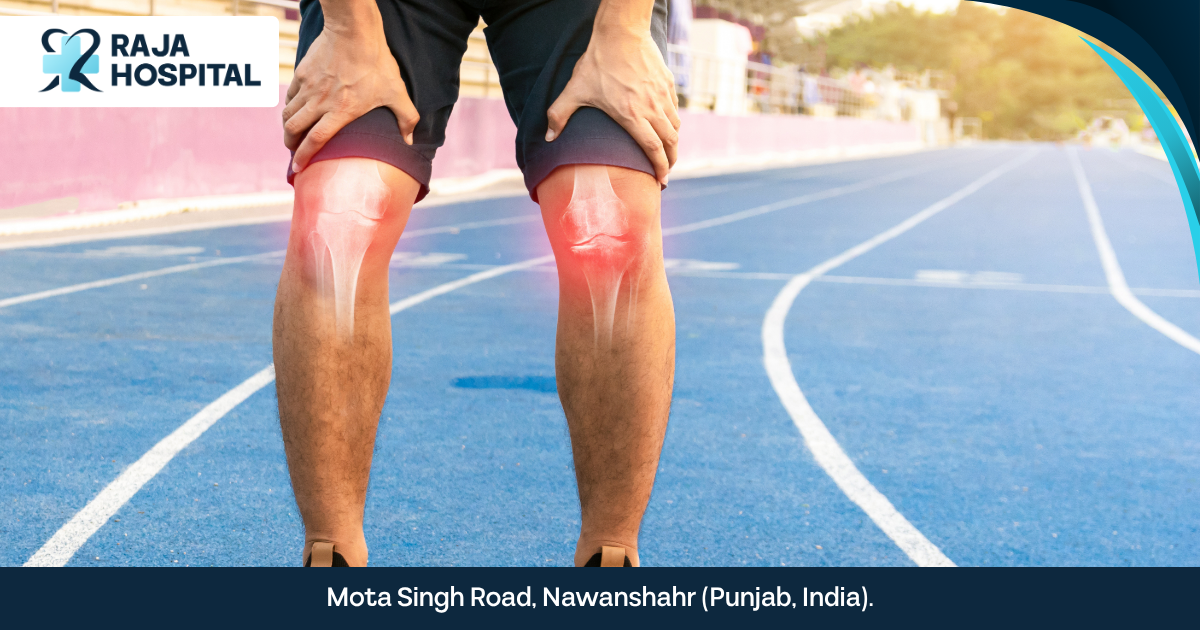
REVIEWED BY Dr. Partiksha Patyal (Physiotherapist) on 1st June 2025.
Do your knees make weird noises when you stand up? Or maybe you feel like your bones are getting weaker as you get older? You’re not alone, and no, it’s not just “old age.”
Bone problems often start quietly. One day you’re walking fine, the next day, you feel a strange pain, or worse, get a small fracture from a minor fall. That’s how weak bones show up without much warning.
But here’s the good news: you can improve your bone health naturally, just by eating the right foods.
In this blog, I’ll share 10 everyday foods that help keep your bones strong. I’ll also discuss how food supports your bones, provide easy exercises to strengthen them, and identify signs that it might be time to see a physiotherapist. Let’s get started because healthy bones mean a stronger, more active life.
How Food Plays a Vital Role in Bone Strength?

When we think of strong bones, we usually picture calcium tablets or milk. But the real magic is in our everyday meals. What we eat can either build our bones up or slowly break them down.
Let’s explore how food supports your bones and what mistakes to avoid.
Nutrients that directly influence bone density
Your bones need more than just calcium. Here are some key nutrients that play a direct role in keeping them strong:
- Calcium helps build and maintain bone structure
- Vitamin D improves calcium absorption in the body
- Magnesium supports bone quality and strength
- Vitamin K helps bind calcium to bones
- Protein is essential for bone repair and growth
A balanced mix of these nutrients can do wonders over time. And the best part is, most of them can be found in natural, everyday foods.
Common dietary mistakes that hurt your bones
Sometimes, it’s not just about what we eat but also what we overdo. Here are some habits that can weaken your bones:
- Too much salt can cause calcium loss
- Sugary drinks and sodas interfere with calcium absorption
- Low-calorie or crash diets often miss essential nutrients
- Skipping meals can lead to nutrient gaps that your bones pay for later
Being mindful of these mistakes can help you protect your bone health, even without big changes.
Top 10 Foods That Support Strong Bones
If you think keeping your bones strong is all about popping calcium tablets, think again. Your kitchen holds the power to support your bone health naturally. Let’s explore ten foods that are packed with the nutrients your bones crave.
1. Milk, Yogurt, and Cheese
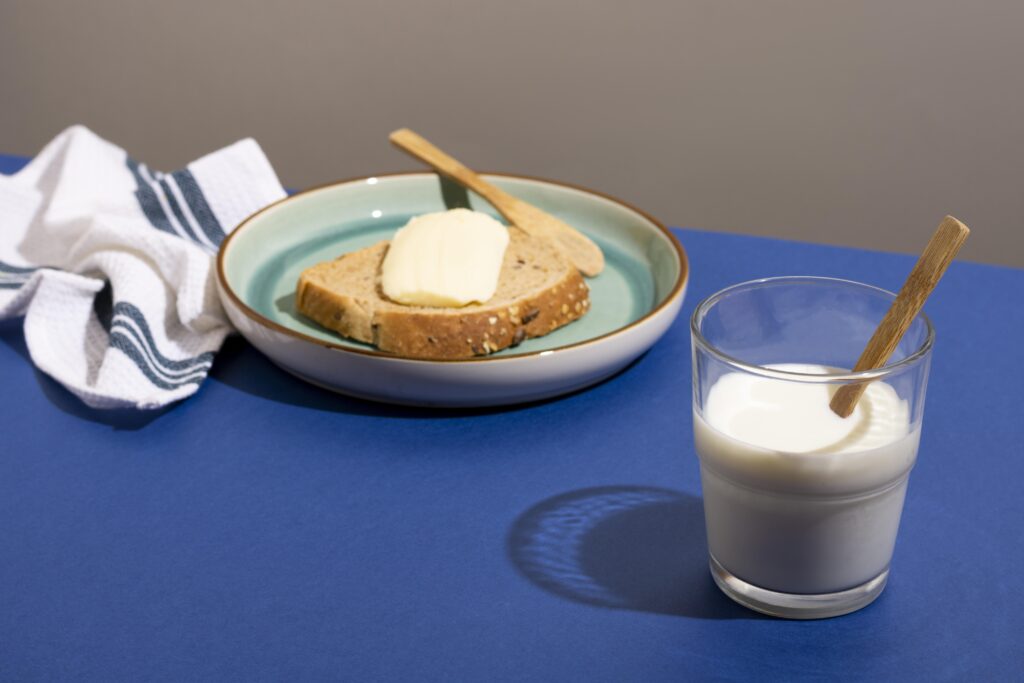
These are the go-to sources of calcium, and for good reason. Calcium is the mineral your bones are made of. One cup of milk gives you around 300 milligrams of calcium. Yogurt, especially Greek yogurt, also provides protein, which helps repair bone tissue. Cheese, especially hard cheeses like parmesan, is rich in calcium and can easily be added to snacks or meals.
2. Leafy Greens like Spinach, Kale, and Bok Choy
These green vegetables are calcium-rich and also provide magnesium and Vitamin K. Magnesium helps convert vitamin D into its active form, which aids in calcium absorption. Vitamin K supports bone mineralization. Add a handful of spinach to your dal or mix kale into smoothies to get these bone-boosting benefits.
3. Fatty Fish such as Salmon, Mackerel, and Sardines

These fish are full of Vitamin D, which is essential for your body to absorb and use calcium properly. Sardines also contain small edible bones that are high in calcium. Eating fatty fish twice a week can significantly improve bone health and lower your risk of bone fractures.
4. Almonds
Almonds are a compact source of magnesium, calcium, and healthy fats. Magnesium helps in the structural development of bones and plays a role in balancing calcium levels in the body. Snack on a small handful of almonds daily or blend them into smoothies or desserts.
5. Chia Seeds and Flaxseeds
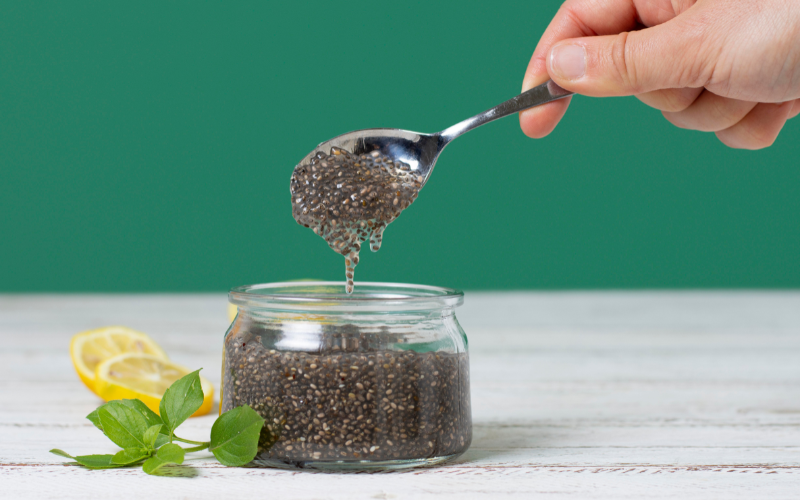
These seeds are often overlooked, but they are rich in calcium, magnesium, and Omega-3 fatty acids. Omega-3s help reduce inflammation, which is important for joint and bone health. Sprinkle a tablespoon into your oats, curd, or even chapati dough.
6. Eggs
Egg yolks contain Vitamin D in small amounts. While they may not be your main source, every bit counts. Eggs also provide high-quality protein that supports muscle and bone recovery. Including one to two eggs in your daily diet can support overall strength.
7. Beans and Lentils
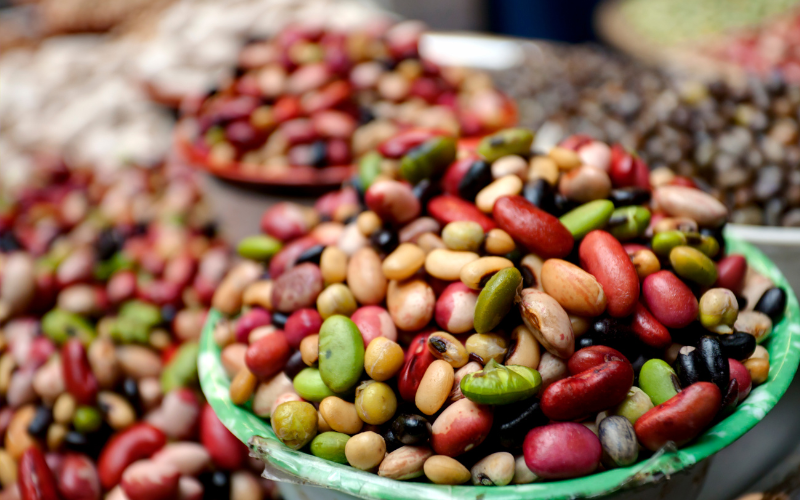
These are rich in plant-based protein, iron, magnesium, and zinc. Zinc is especially important for building and maintaining bone tissue. Lentils like moong dal, rajma, and black beans can be easily added to your lunch or dinner for a bone-supportive boost.
8. Tofu and Soy Products
Tofu is high in calcium and provides a complete source of protein for vegetarians. It also contains isoflavones, plant compounds that may protect bones, especially in postmenopausal women. Add tofu to your curries, salads, or stir-fries to enjoy its bone-strengthening benefits.
9. Bone Broth

Bone broth is made by simmering animal bones for hours. This process extracts collagen, calcium, phosphorus, and magnesium. Drinking a warm cup of bone broth regularly can help improve joint health and provide the building blocks for stronger bones.
10. Oranges and Fortified Juices
Oranges are rich in Vitamin C, which helps in the production of collagen, an important component of bone tissue. Fortified orange juices also come with added calcium and Vitamin D, making them a tasty and effective way to support bone health, especially for those who are lactose-intolerant.
Adding these foods to your diet doesn’t require a complete lifestyle overhaul. Just small daily choices that add up to stronger, healthier bones in the long run.
Bone-Strengthening Exercises To Add To Your Routine
Strong bones don’t just come from the kitchen. Your bones, like your muscles, get stronger the more you use them. When you put stress on them through movement, your body responds by building them up. And no, you don’t need a fancy gym membership or heavy weights to do this.
Here are some simple exercises that can help keep your bones dense and your joints stable.
Weight-Bearing Workouts You Can Do at Home
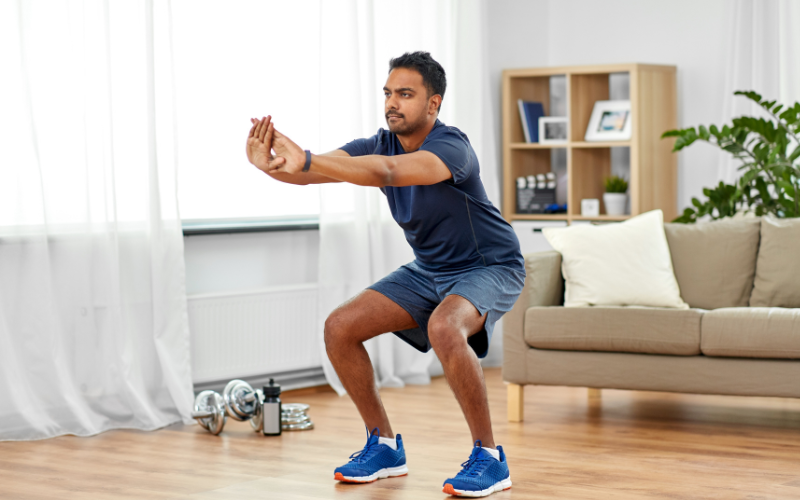
Weight-bearing doesn’t mean lifting weights. It means any activity where your body works against gravity while staying upright. These exercises help build new bone tissue, especially in your hips, legs, and spine.
- Walking or brisk walking for 30 minutes a day
- Stair climbing instead of elevators
- Bodyweight squats to strengthen hips and thighs
- Jumping jacks or light jogging to add impact for bone stimulation
- Dancing, which combines weight-bearing with fun and coordination
These exercises are safe for most people and can easily become part of your daily routine.
Stretching and Balance Exercises for Joint Support

Strong bones need good support. If your joints are stiff or your balance is poor, you’re more likely to fall and injure yourself. Flexibility and balance training keep you steady and help prevent fractures.
- Yoga builds flexibility, strength, and posture awareness
- Tai Chi improves balance and coordination
- Simple stretches for your back, legs, and arms
- Heel-to-toe walk across the room to improve stability
Start slow and focus on consistency. Just 15 to 20 minutes a day can make a big difference in your mobility and bone health.
When Should You See a Doctor?
Most people wait too long to take bone health seriously. They might ignore pain, brush off stiffness, or think small injuries are just a part of getting older. But your body gives clear signs when something isn’t right. The sooner you act, the better your chances of preventing long-term damage.
Warning Signs Your Bones Might Be in Trouble

If you experience any of the following, it’s time to pay closer attention:
- Frequent joint or back pain without a clear reason
- A stooped or hunched posture
- Height loss over time
- Fractures from minor bumps or falls
- Fatigue or weakness during everyday tasks
- Cramps or muscle spasms
These signs could point to low bone density, early stages of osteoporosis, or other issues that need medical attention.
What a Physiotherapist Can Do for Your Bone Health?

Visiting a physiotherapist is not just for people with sports injuries. It’s one of the smartest steps if you want to protect your bones.
Here’s how a physiotherapist can help:
- Assess your posture, balance, and risk of falling
- Create a personalized exercise plan to strengthen bones and joints
- Teach safe movements to avoid stress on weak areas
- Help with recovery after fractures or bone-related injuries
- Guide you on proper body mechanics for daily activities
If you live in or around Nawanshahr, I highly recommend visiting the expert team at Raja Hospital. Their physiotherapists are experienced in managing bone health and mobility issues. Early intervention can save you years of pain and restriction.
Frequently Asked Questions
1. Can bone density be improved after 40?
Yes. With the right diet and regular exercise, you can slow down bone loss and even improve bone strength.
2. Are supplements as effective as food?
Supplements help fill gaps, but real food is more effective since it provides multiple nutrients together.
3. How long does it take to strengthen bones?
It usually takes a few months to see changes. Consistency with diet and exercise is key.
4. What’s the best exercise for weak bones?
Walking, squats, light weight training, and yoga are great for building bone strength safely.
5. Can you reverse bone loss naturally?
Early-stage bone loss can often be reversed with lifestyle changes. Advanced cases may need medical help.
Struggling with same?
Book Your Appointment With Our Expert Doctors

Conclusion
Bone health often gets ignored until it becomes a serious issue. But with the right food choices and daily habits, you can protect and even strengthen your bones at any age.
Start by adding bone-friendly foods like milk, leafy greens, fish, nuts, and seeds to your meals. These are rich in calcium, Vitamin D, magnesium, and other key nutrients your bones need.
Pair your diet with simple weight-bearing exercises like walking, squats, and stretching to keep your bones strong and joints stable. And most importantly, listen to your body. If you’re dealing with pain, stiffness, or frequent injuries, it may be time to seek expert advice.
If you’re looking for professional guidance, the physiotherapists at Raja Hospital are here to help. Whether you’re trying to prevent bone issues or recover from one, they can create a plan that works for your body. Strong bones start with small daily choices. Make them count.
